Jan 10, 2016 (LBO) - Sri Lanka should rethink its immigration, diaspora and product development policies so as to encourage more complexity in exports, economist Ricardo Hausmann of Harvard University said in Colombo on Monday.
Immigrants and diaspora bring with them significant know-how and skills necessary for the setting up of new industries, a process which Sri Lanka could benefit from, he said.
Hausmann, the director for the Center for International Development at Harvard University, is advising Sri Lanka on how to develop the economy, on the request of the government.
Silicon Valley is driven by immigrants who account for half of top management positions, Hausmann said, giving an example of how certain industries achieve exceptional growth.
Sri Lanka has, however, struggled to diversify exports, especially into electronics and machinery, which peer countries have done over the last 20 years.
"The speed limit of the economy is the speed limit of the capacity to export," he said.
A post-war acceleration in growth slowed down in the last four years, as Sri Lanka's growth has been tied to widening current account deficits.
"When it reaches too high, you call in the IMF."
The reason for the gradual slowdown in exports, as a percentage of GDP, is partly due to the mix of products, mainly in garments, tea and rubber, remaining largely unchanged over the years. Comparable countries have added electronics and machinery into the mix.
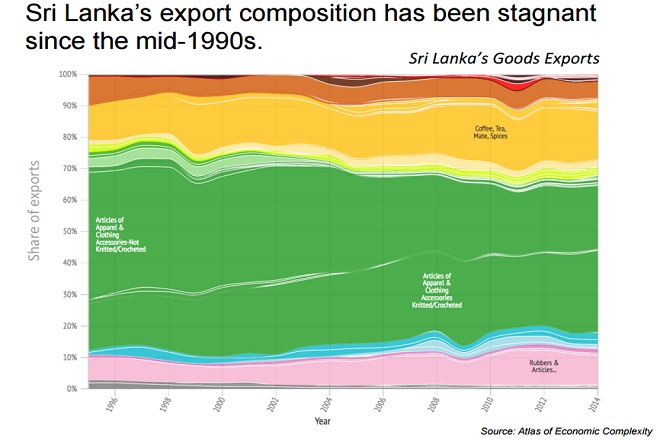
Hausmann explained that a key factor in Sri Lanka's divergence with countries such as Thailand, Vietnam and China is in the area of technology.
Technology is three different kinds of things. First, it is tools, second, it is codes, blueprints and procedures, and thirdly, it is know-how, which is not easily communicated and transferred. Rather, it travels in the heads of people.
But creative strategies could be adopted to obtain this know-how.
According to Hausmann's team, Sri Lanka has not been learning from countries that have the capacity to transfer knowledge in skilled industries like machinery and electronics.
This is partly due to the failure of markets, the absence of a market for land outside of the state, and actively finding out what investors need to invest in Sri Lanka.

Hausmann said the island must rethink what investors need to set up new industries and find out what are the missing inputs for markets -- information which can be obtained simply by asking them.
A targeted approach to develop certain sectors so that they reach the next stage of diversification as well as moving into new areas of exports was necessary, he added.
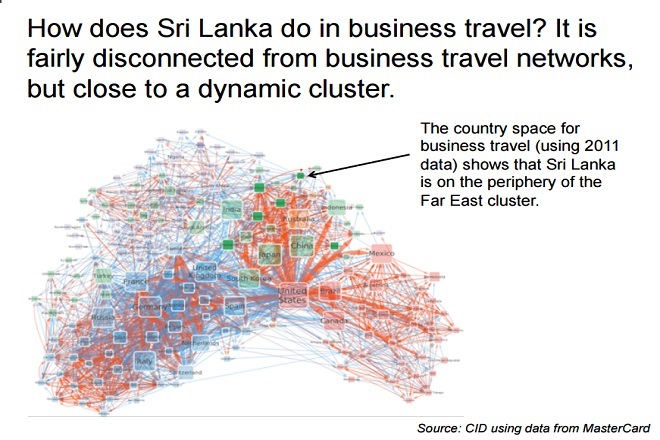
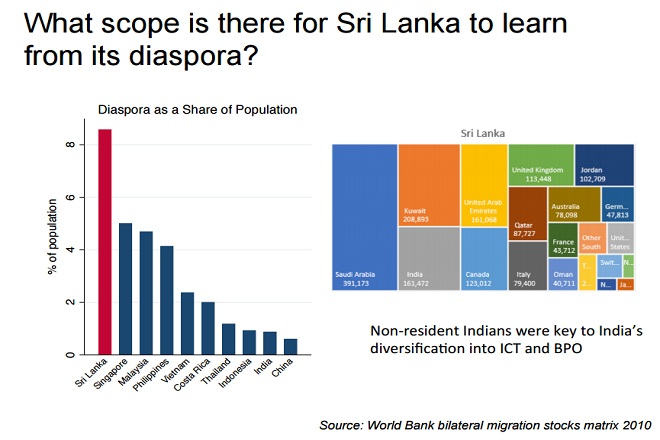
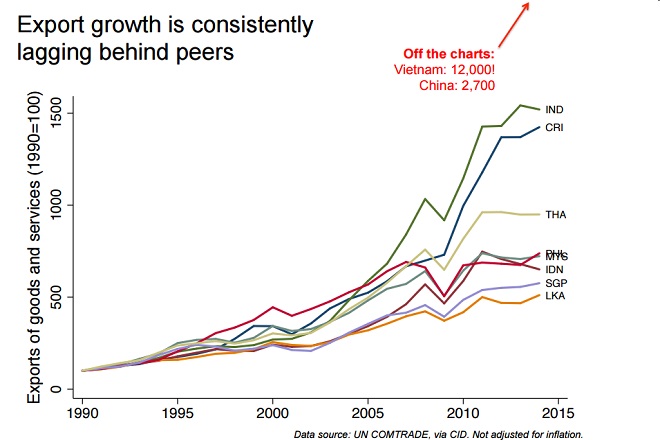
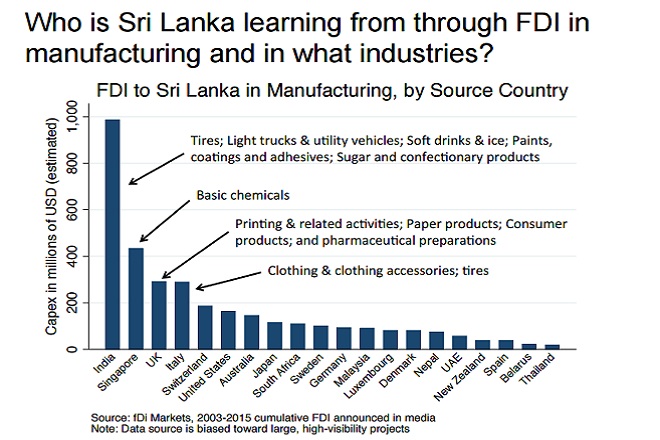
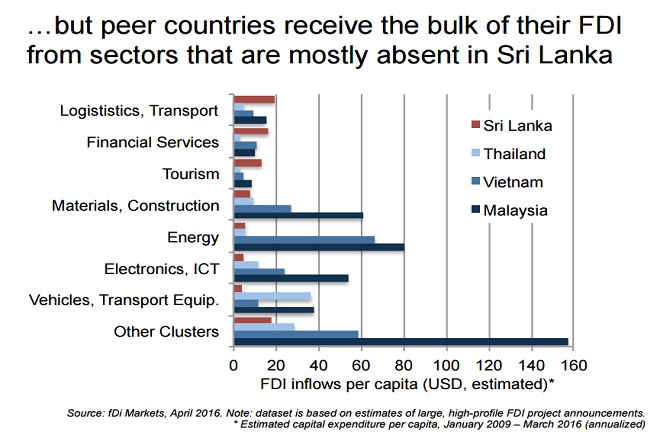
 Hausmann explained that a key factor in Sri Lanka's divergence with countries such as Thailand, Vietnam and China is in the area of technology.
Technology is three different kinds of things. First, it is tools, second, it is codes, blueprints and procedures, and thirdly, it is know-how, which is not easily communicated and transferred. Rather, it travels in the heads of people.
But creative strategies could be adopted to obtain this know-how.
According to Hausmann's team, Sri Lanka has not been learning from countries that have the capacity to transfer knowledge in skilled industries like machinery and electronics.
This is partly due to the failure of markets, the absence of a market for land outside of the state, and actively finding out what investors need to invest in Sri Lanka.
Hausmann explained that a key factor in Sri Lanka's divergence with countries such as Thailand, Vietnam and China is in the area of technology.
Technology is three different kinds of things. First, it is tools, second, it is codes, blueprints and procedures, and thirdly, it is know-how, which is not easily communicated and transferred. Rather, it travels in the heads of people.
But creative strategies could be adopted to obtain this know-how.
According to Hausmann's team, Sri Lanka has not been learning from countries that have the capacity to transfer knowledge in skilled industries like machinery and electronics.
This is partly due to the failure of markets, the absence of a market for land outside of the state, and actively finding out what investors need to invest in Sri Lanka.
 Hausmann said the island must rethink what investors need to set up new industries and find out what are the missing inputs for markets -- information which can be obtained simply by asking them.
A targeted approach to develop certain sectors so that they reach the next stage of diversification as well as moving into new areas of exports was necessary, he added.
Hausmann said the island must rethink what investors need to set up new industries and find out what are the missing inputs for markets -- information which can be obtained simply by asking them.
A targeted approach to develop certain sectors so that they reach the next stage of diversification as well as moving into new areas of exports was necessary, he added.





